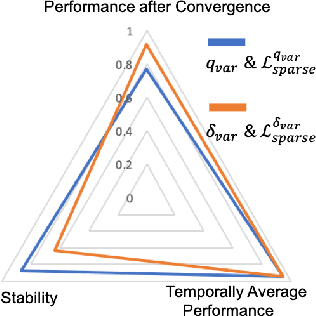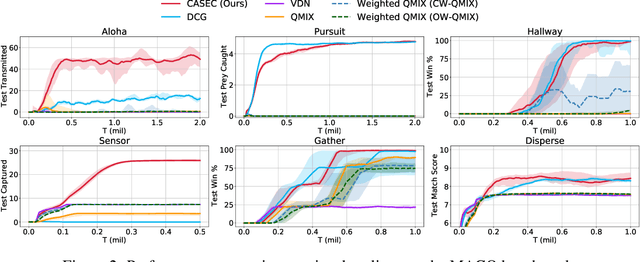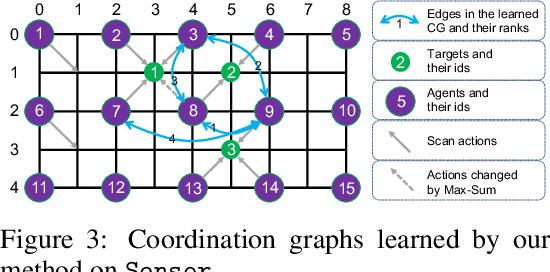Context-Aware Sparse Deep Coordination Graphs
Paper and Code
Jun 05, 2021



Learning sparse coordination graphs adaptive to the coordination dynamics among agents is a long-standing problem in cooperative multi-agent learning. This paper studies this problem by proposing several value-based and observation-based schemes for learning dynamic topologies and evaluating them on a new Multi-Agent COordination (MACO) benchmark. The benchmark collects classic coordination problems in the literature, increases their difficulty, and classifies them into different types. By analyzing the individual advantages of each learning scheme on each type of problem and their overall performance, we propose a novel method using the variance of utility difference functions to learn context-aware sparse coordination topologies. Moreover, our method learns action representations that effectively reduce the influence of utility functions' estimation errors on graph construction. Experiments show that our method significantly outperforms dense and static topologies across the MACO and StarCraft II micromanagement benchmark.
 Add to Chrome
Add to Chrome Add to Firefox
Add to Firefox Add to Edge
Add to Edge